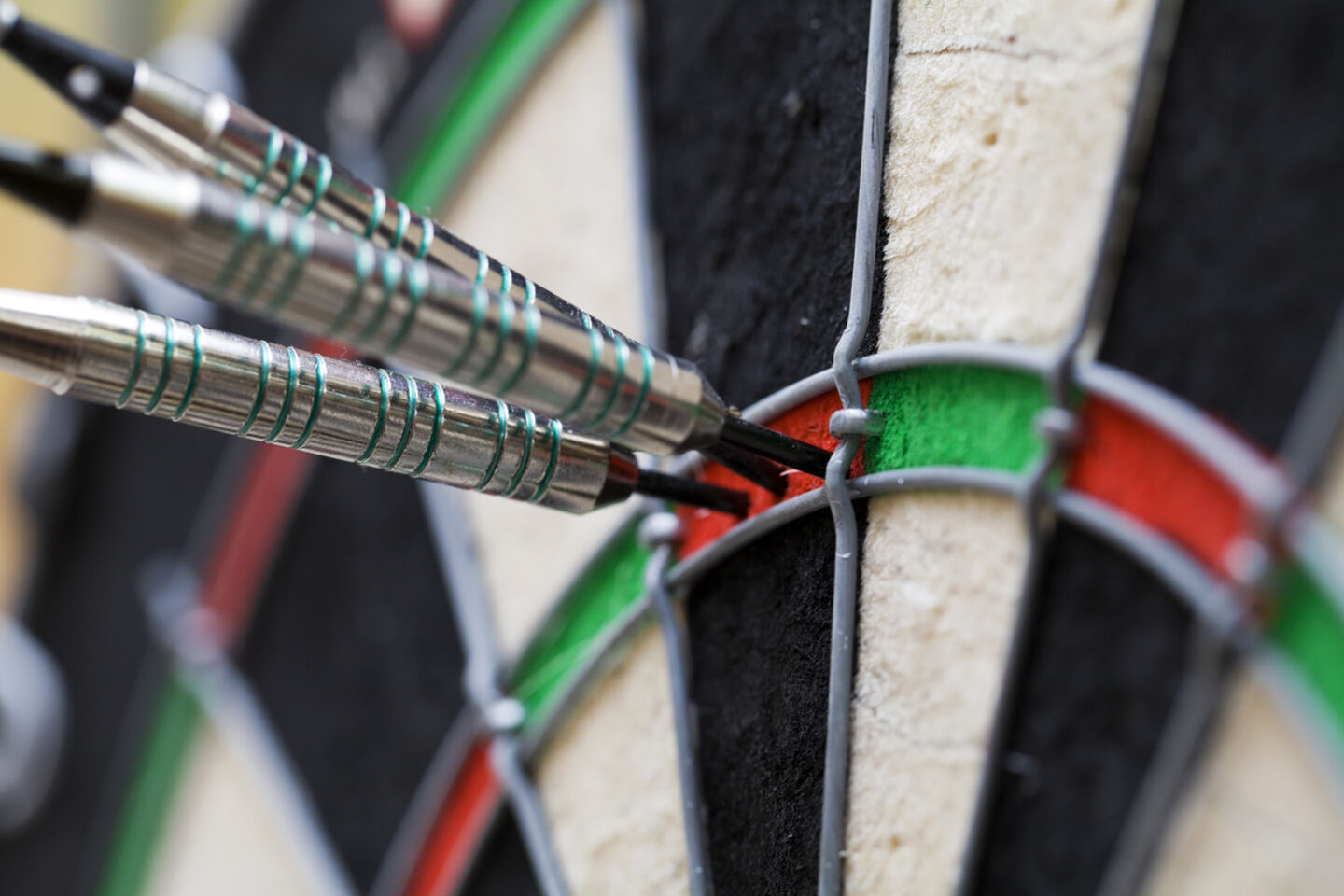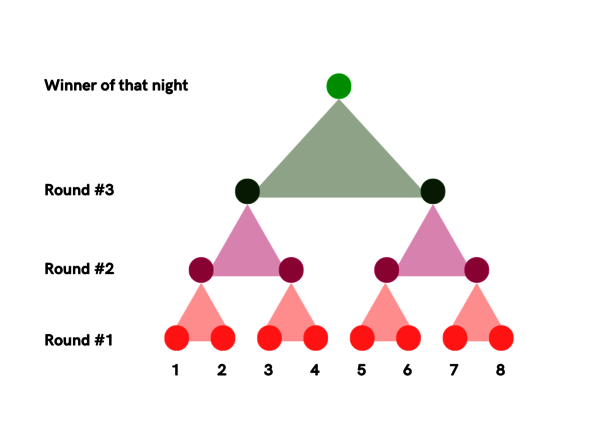
TU/e supplies schedules for world’s best darts players
Math for a fair match
Tonight, the grand finale of the Premier League Darts – a competition between the eight best darts players in the world – will take place. The playing schedules were devised by TU/e researchers: former PhD candidate Roel Lambers and Professor Frits Spieksma. “I sent them an unsolicited email with our schedules and now they’re using them.”
A few years ago, the Professional Darts Corporation (PDC) launched a new competitive format, a serial knock-out (SKC). The best eight players in the world get together for sixteen Thursdays to play an entire knock-out schedule. “Knock-out means: if you win, you advance and if you lose, you’re out,” says Spieksma, professor of Combinatorial Optimization. “So every night the same eight players start and one winner emerges after three rounds.”
You could be the second-best player but never make it to the final because of the unfair schedule
Unfair
Spieksma explains that when PDC started this new SKC format in 2022, the playing schedules weren’t entirely fair. Some players were pitted against each other more often than average, while others hardly ever played each other. “Suppose you’re one of those eight players. The first Thursday you’re up against Van Gerwen (reigning champion, ed.) in the first round and you lose. A week later you’re facing Van Gerwen again, and you lose again. Then you’ll of course start thinking that things aren’t fair,” he says. “In theory, you could be the second-best player but never make it to the final because of the unfair schedule.”
The competition concerned, the Premier League Darts, consists of seven nights times two, plus two special nights (nights 8 and 16), which are drawn based on the scores up to that point. Nights 1-7 and 9-15 aren’t drawn, which means you need fair playing schedules for these nights. According to Spieksma, it’s difficult to devise a schedule that is fair for all of the three rounds. “In the first edition (in 2022, ed.), for instance, Van Gerwen and Anderson played against each other in the first round, but after that not until the third round. And other that year players never played against each other in the third round, but always in the second one.”
You need some serious math
It’s possible to be fair
When asked if fair playing schedules in all rounds are feasible, Spieksma’s response is clear. “We researched this in depth: it’s possible.” Former PhD candidate at TU/e Roel Lambers even devoted a large portion of this PhD research to this, under the supervision of Spieksma and Assistant Professor Rudi Pendavingh. In 2022, Lambers obtained his PhD on this subject and – among other things – on fairness in other kinds of playing schedules.
Their paperHow to Design a Stable Serial Knockout Competition contains all calculations proving that fairness across an entire darts competition is always possible. This sounds easier than it is, Spieksma stresses. “You need some serious math.”
Contact with the PDC
After finding that fairness in all rounds was indeed possible, Spieksma decided to try his luck and spontaneously approached the PDC. “The only way to contact the PDC is through their website, by way of the typical contact form that allows you to type no more than 200 characters. I was pretty sure I’d never hear back from them,” he says with a laugh. “In the event, I received a response within 24 hours. Which was positive, but very non-committal, so it wasn’t entirely clear to me whether they’d be doing anything with it. But when the schedules for the following year were announced, we saw they’d been adapted to ours.”
As a thank-you, Spieksma and his fellow researchers got tickets for a darts match in Berlijn. “I would have really loved to go, but sometimes life gets in the way so I’m sad to say we didn’t make it.”


Discussion